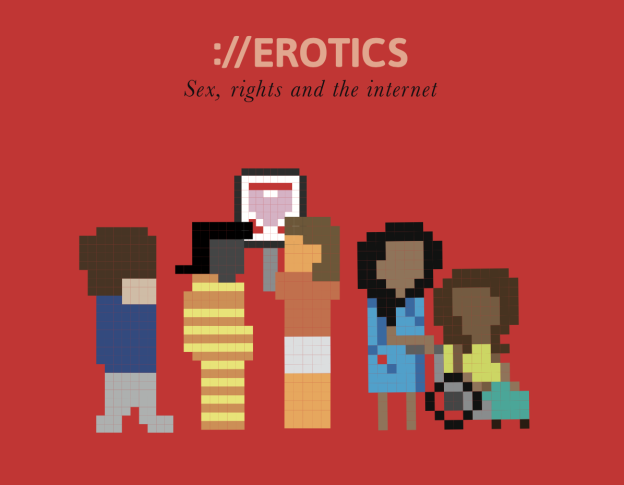
EROTICS is an exploration of the internet and its multi-layered relationship with sexuality, rights and sexual expression, and is a space/place of practices and a network of people which started in 2008. Its purpose was and is to look into the obscure, the unexpected and the obvious. The internet is a fast-paced world, known for accelerations but also broken links, unfinished architectures, truly a network of networks. Nine years could sound like a long-term research project, but actually it is only enough to just land somewhere.
On the internet, features and products appear, disappear, come and go unnoticed and are forgot- ten, but learning the machine is different. Learning the machine is understanding how the machine we are all in and out of at the same time, learns about us. And who are we? Because we are many, really many, yet still there are more in the immediate vicinity of the machine unable to input as they wish, while fascinated by and signified within and by the machine itself.
EROTICS in its second iteration, first of all, included two new countries: Nepal and Sri Lanka, and these form an important baseline from South Asia that looks at internet-related challenges and opportunities experienced by women, LGBTIQ (lesbian, gay, bisexual, transgender, intersex, queer) and sexual rights advocates. Legal frameworks, regulation, experiences and strategies to respond to challenges as well as use of the “power” of the internet.
Table of contents
Introduction
In plain sight: On sexuality and the internet in India, Nepal and Sri Lanka ........................... 5
(hvale vale)
Country research
India
Guavas and genitals: A research study ........................... 16
(Lead researcher: Bishakha Datta; Researchers: Smita Vanniyar, Jasmine Lovely George, Neha Mathews, Rachel Bali, Zahra Adamjee)
Point of View (POV)
Nepal
The internet and sexual expression: Exploring the use of the internet among gender equality and sexual rights advocates in Nepal ............................ 50
(Author: Indu Nepal, Research coordinator: Shubha Kayastha, Research assistants: Gyanu Gurung, Shiwa Karmacharya)
Online violence against women: A continuum of offline discrimination ........................... 73
(Authors: Jyotsna Maskay and Shiwa Karmacharya, Shaun Kirven)
LOOM
Sri Lanka
Virtually queer: Human rights of LGBTIQ Sri Lankans in the online space ........................... 81
(Authors: P.M. Deshapriya and J.M. Mendis)
Lesbian women and their use of the online space ........................... 115
(Authors: Shermal Wijewardene and Subha Wijesiriwardena)
Women and Media Collective (WMC)